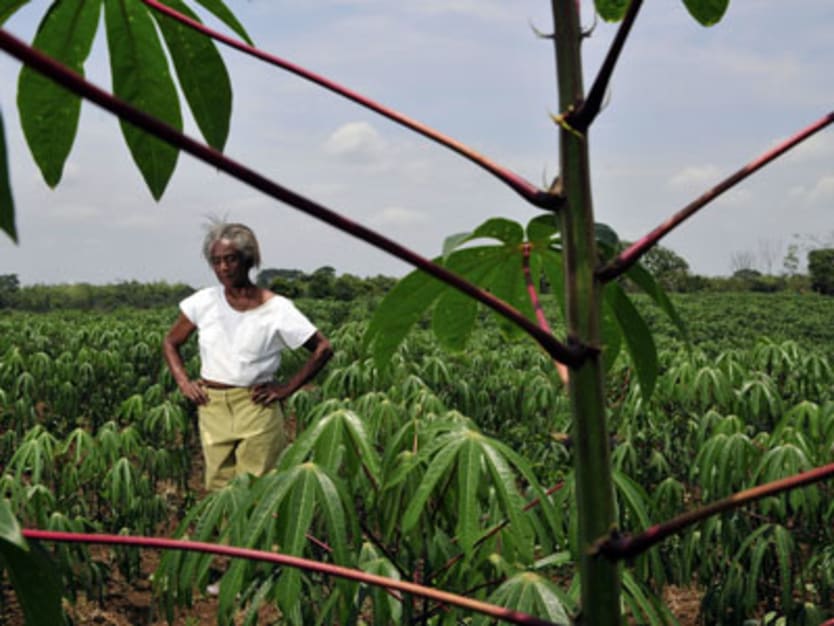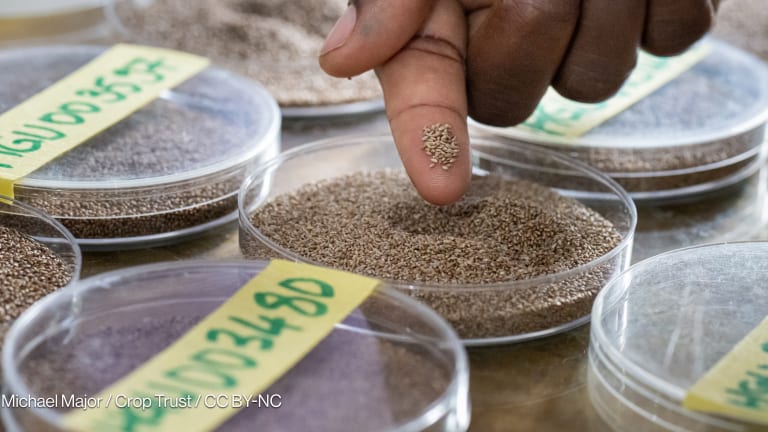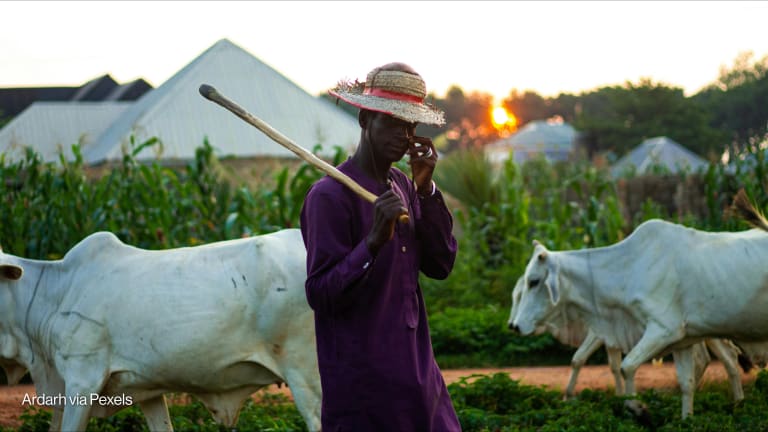
By Eric Postel, assistant administrator of the U.S. Agency for International Development, and Tjada McKenna, Feed the Future’s deputy coordinator for development
Under U.S. President Barack Obama’s Feed the Future initiative, we have made incredible strides in increasing crop yields, agricultural surpluses and farmers’ incomes.
We have supported training, the implementation of new technologies and climate-smart management techniques to facilitate economic growth, increase security for the world’s most vulnerable populations, and improve child nutrition and life expectancy. We have targeted assistance to women smallholder farmers, who contribute the great majority of smallholder agricultural labor, resulting in greater investments in children’s health and education.
In order to continue this momentum and make hunger, undernutrition and extreme poverty permanently a thing of our past, we must do more. This includes working with governments around the world to help them develop secure property rights for farmers — both large and small-scale.
We hear from smallholder farmers around the world that they want to increase their productivity and earn greater income to feed their families, send their children to school, and pay for medicine and other life necessities — in short, they want a better life. But in many parts of the world, farmers lack the tools, technology and rights to achieve these aspirations.
To take advantage of new tools and technologies, farmers in all countries need strong property rights to be certain that they will have their land long enough to realize the benefits of their investments. They need to have confidence that their land and crops will not be seized by more powerful interests — particularly if they make productivity-enhancing investments, for example in soil and water conservation — without due process and compensation. Strengthening property rights is even more important for women, who often have fewer and weaker property rights than men, yet play a larger role in agriculture in many countries where we work.
When property rights are clear and secure, all farmers are empowered to make better economic decisions, including whether to sell or lease their land, expand their production, recruit non-family labor, and plant long-term crops for local consumption and for the market. With clear rights to land, farmers are more likely to make investments that increase crop yields, practice sustainable farming methods that improve soil quality, and better manage their resources. At the same time, transparent land rights provide those interested with the option to move out of agriculture — and encourage responsible investment for those who choose to stay.
The global community has recognized the critical role that property rights play in achieving food security for all and has recently increased its support for strengthening property rights. In 2012, African leaders, G-8 nations and private sector partners formed the New Alliance for Food Security and Nutrition. Its goal is to lift 50 million people in sub-Saharan Africa out of poverty over 10 years. To realize this goal, nine New Alliance countries in Africa have committed to a number of policy reforms, including strengthening land governance, partnering with private firms and allocating a larger portion of their national budgets to agriculture. This is a breakthrough approach intended to deliver results at scale and transform economies.
The international community — including developing countries, donor countries, multilateral institutions, civil society and the private sector — have also worked together through the United Nations Committee on World Food Security to adopt Voluntary Guidelines on the Responsible Governance of Tenure of Land Fisheries and Forests in the Context of National Food Security. These guidelines, which have gender equity as a guiding principle, may be used as a road map for countries to improve their land governance systems. In support of these guidelines and building upon previous New Alliance commitments, the U.S. government and the government of Burkina Faso launched a partnership at the 2013 G-8 Summit to improve land governance and increase transparency of land transactions.
USAID works in nearly 30 countries around the world to address weak land governance and improve the protection of land and resource rights. We also coordinate with the global donor community to increase and align investments in property rights programs and improve transparency. We believe that these efforts are a crucial step in increasing food security for a global population that will reach 9 billion by 2050.
Development practitioners can play a role in strengthening land rights and food security. Where appropriate, we should look for ways to address property rights issues within the context of our work.
Be aware of land rights challenges in the countries where we work. Improved food security depends on economic investment, good governance, gender equality, conflict prevention and management, climate change mitigation and adaptation, and sustainable natural resource management. Because secure land rights are so closely intertwined with all of these development goals, there are many opportunities to strengthen property rights.
Watch out for unintended consequences. Some programs may unintentionally undermine property rights, especially for women and other vulnerable groups whose rights may not be recognized by either formal or customary systems. Land titling, for example, may strengthen land rights only for men if women’s rights to use, own and inherit land are not formally or culturally recognized as independent of their husbands or families. Similarly, formalizing farmers’ rights to cropland may inadvertently weaken the rights of herders and others who depend on access to seasonal resources for their food security and livelihoods.
Support appropriate institutional, policy, and legal reforms that recognize the rights of all agricultural producers — including those who access farmland through sharecropping or rental agreements. Laws, institutions and norms — whether they are part of formal or more customary systems — may either enforce or restrict the property rights held by different individuals and groups. We should seek ways to harmonize these systems and level the playing field for all individuals and groups, so that investments — large or small — can be made with confidence.
The impact of our food security strategy and efforts to reduce extreme poverty can only be fully realized once we secure land rights across the developing world.
Want to know more? Check out Land Matters, a new campaign to showcase innovative solutions in the areas of food security, economic development, conservation and more. Read more about USAID’s efforts on land and property rights and about Feed the Future.
Search for articles
Most Read
- 1
- 2
- 3
- 4
- 5








